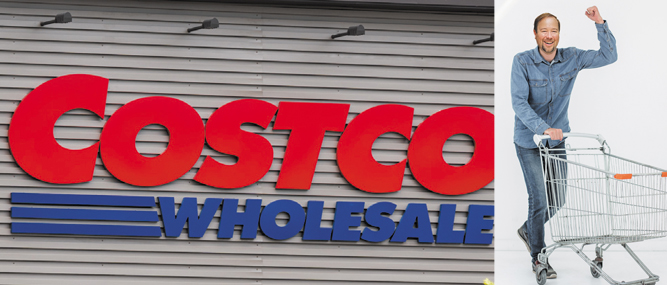The next big thing in pallets has been right around the corner for the last 30 years. I have seen just about every design and concept you can imagine. No matter the technology behind the pallet, it is the logistics network and bean counters who are going to make or break the next big thing in pallets.
Costco, one of the nation’s largest retailers, thinks it has seen the future for its supply chain, and the future is plastic. But there’s one real big problem. Even with skyrocketing lumber costs, wood remains the most economical solution for large pallet pools. Costco used to be one of the most important forces in the white-wood pallet market. Its high club-grade standard pushed recyclers to develop better offerings. But that influence mostly went away when the retailer changed its pallet specification in 2010 to require block pallets and a higher-quality pallet. This move pushed many product manufacturers to switch to rental for Costco shipments.
Overall, Costco hasn’t been a big fan of white-wood pallets for a while, and it has been pushing behind the scenes to get a rental pallet supplier to develop a plastic pallet pool to service its club stores. CHEP has stepped up to develop a pilot program with Costco and the results aren’t surprising. The major challenge is the price tag and who is going to pay the bill. A plastic pallet designed to work well in a club store is at least three times the cost of a quality wooden pooled pallet. While there are some system benefits to plastic, somebody has to be willing to pay for the higher-priced asset.
Graham Chipchase, the CEO of Brambles, commented, “The purpose of these pilots is to test various product and business model parameters within Costco’s end-to-end supply chain, such as pilot durability in different operating environments, dwell times and efficacy of asset control mechanisms.”
Chipchase suggested any move beyond trials to implementing a roll out of a plastic pallet for Costco wouldn’t take place in fiscal 2021. He added, “As we have always maintained any decision on implementation will be subject to strict financial and return criteria.”
That means, CHEP is willing to launch a plastic pool for Costco, when product manufacturers agree to pay the bill. This pilot program has used RFID to try to track pool performance. The current phase is all about data and proving the cost model. Switching to plastic has a number of benefits for Costco from insurance and liability to appearance to reduction of product damage to safety.
Explaining the reasons for Costco’s hopes to move to plastic, Chipchase said, “This is something that is very specifically being requested by Costco…It’s driven by their view on health and safety in their particular network because if you’re going to a Costco store you have pallets fully loaded, soaring high bay racking, which you don’t see anywhere else, and therefor they are sticking at the integrity and the appearance of the pallet.”
Chipchase was quick to point out that any move to plastic is likely limited to Costco given the cost. He predicted, “If this is a solution for Costco, we don’t think it’s likely to spread across the whole system quickly because of the price premium that’s a concern.”
Is safety a real danger when it comes to pallets in club stores? Recent research suggests that merchandising from pallets and pallets left in the aisle as trip hazards are leading causes in pallet-related injuries. Researchers from Penn State University recently studied emergency room data and found that from Jan. 1, 2014, to Dec. 31, 2018, there were an estimated 30,493 people who visited hospital emergency rooms for pallet-related injuries. The good news is that most of these injuries did not require hospitalization. But the research does show that pallets can be dangerous if people misuse them.
Judd Michael, a professor at Penn State University who has conducted research in the past on pallet issues, was the lead researcher on the project. He said, “It’s not the pallet’s fault. But its people who do stupid things with them.”
Michael suggested, “Based on our findings, the first obvious practical application of these results would be to eliminate pallets from being used in consumer-facing retail locations where unintentional contact could occur,” he said. “Retailers can cover all floor-level pallets with a brightly colored material to make them more visible, and never leave unused pallets laying on floors.”
According to Michael, the research indicates that both wood and plastic pallets can pose danger if misused. Interestingly, this suggests that switching from wood to plastic may not be a panacea for safety. The real issue is training club store workers to safely handle, use and store pallets.
Will Costco get its wish to switch to plastic? This transition has been in the works for a while. Will Costco reimburse suppliers for the higher costs? One thing is clear, using plastic would drive up pallet costs due to the higher value of the pallet. The big question, “Is anyone willing to pay that higher bill to move away from wood?”





